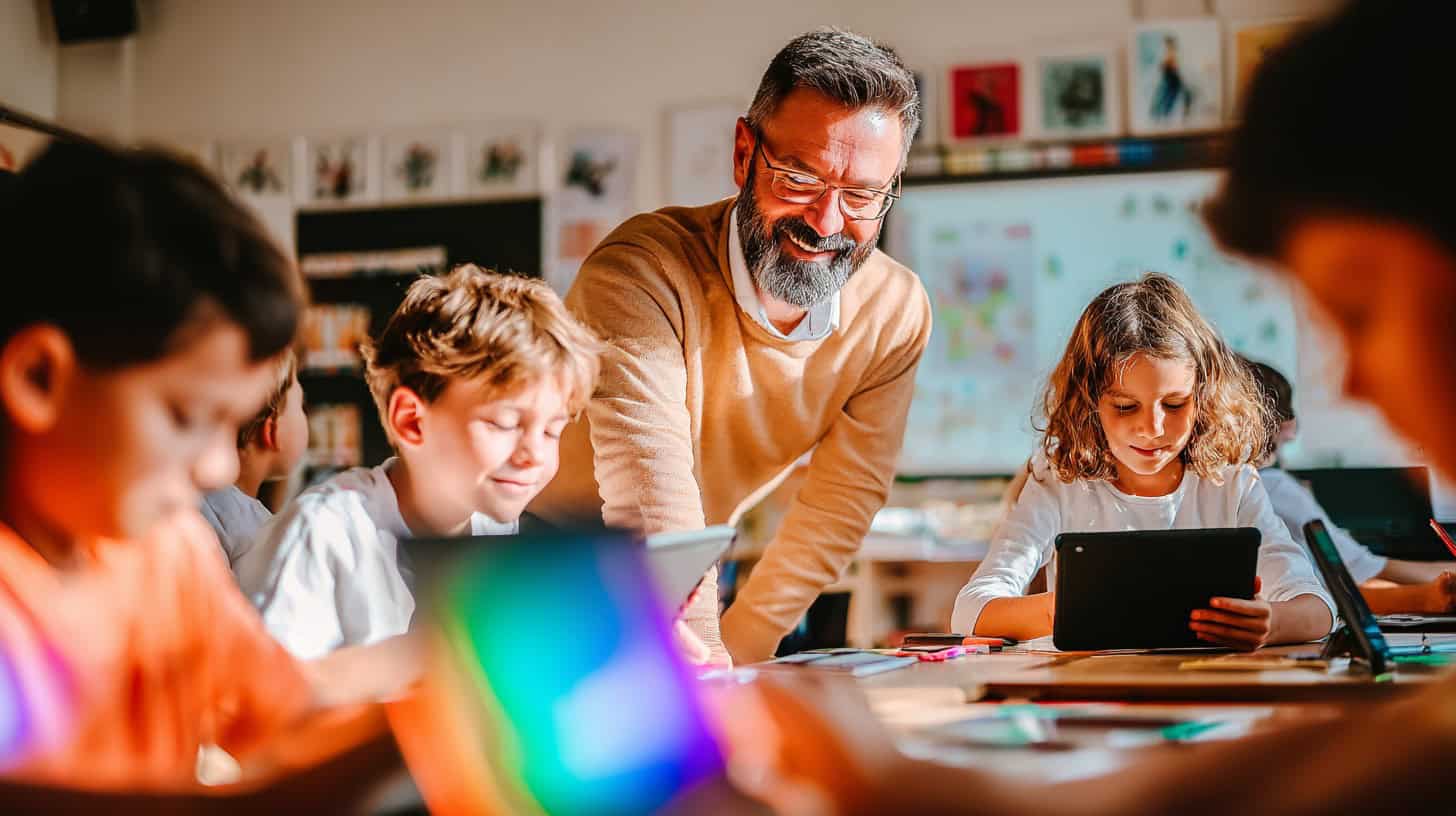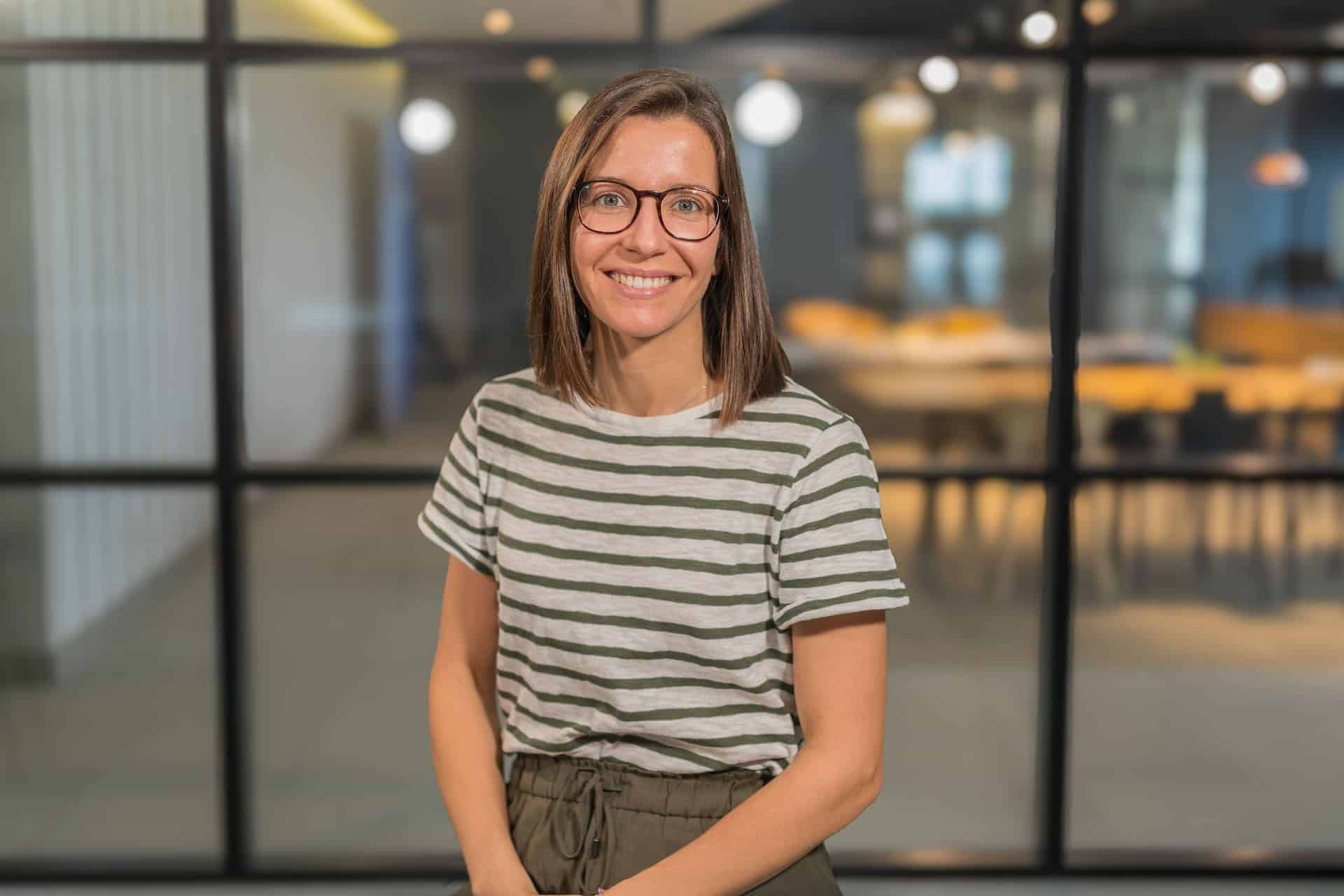Introducing the Founderz Fellows: our first AI-powered mentors
At Founderz, we believe that online education should be personalized. That's why we've created Fellows, virtual AI mentors who accompany students in real time.

We are living in a historic moment where Artificial Intelligence (AI) has begun to transform key sectors of our society, and education is no exception.
What once seemed like something from the future, robots correcting exams, personalized virtual assistants, or adaptive content, has now become part of the present educational landscape.
However, what does this transformation really mean for students, teachers, and institutions?
In this article, we explore the impact of AI in education, from its earliest applications to the possibilities it opens for the years ahead.
Talking about AI in education is not simply about automation. It’s more about how these tools can enhance the way we learn, teach, and manage knowledge.
For example, the use of intelligent systems allows the detection of patterns in academic performance, personalizes e-learning content for each student, and even offers emotional support through chatbots that interact naturally.
All of this helps reduce school dropout rates, improve reading comprehension, and increase classroom participation.
Although we are still in an exploratory stage, certain areas already show clear progress:
You might be interested → AI for Teachers: 5 Ways AI Can Improve Teaching
Integrating AI in education brings a long list of advantages. Here are some of the most relevant:
One of the main benefits of AI in education is the ability to offer personalized experiences to students with different learning styles.
Each student has a unique pace, learning style, and needs. Thanks to AI, it’s possible to adjust content, exercises, and recommendations to suit each individual.
This is especially useful in online learning environments, where autonomous and flexible learning is key.
Continuous monitoring enabled by AI helps both teachers and students identify weaknesses or areas for improvement. This not only improves performance but also strengthens student motivation by showing tangible progress.
Another clear advantage of using AI in education is the automation of repetitive tasks such as exam grading, report generation, and data analysis. This allows teachers to focus on what matters most: guiding, motivating, and mentoring their students.
AI can also be a great ally in making education more accessible to people with disabilities or language barriers. For example, through automatic subtitling of videos, voice assistants, or machine translation.
Talking about the future of AI in education opens the door to multiple possibilities. Some are already underway, others are yet to come. What is clear is that technology will not replace teachers but will empower them.
Current predictions suggest that educational systems will adopt AI-based technologies over the next decade, especially in countries with advanced digital infrastructure.
At Founderz, we strongly believe that well-utilized technology can transform education to make it more accessible, dynamic, and student-centered.
That’s why our certificate program in AI & Innovation is designed to include innovative techniques, updated content, gamification tools in the classroom, and a practical approach that responds to the real needs of the workplace.
We also promote critical thinking and the responsible use of technology, training professionals who are capable of using AI not only as a tool but as a lever for positive change.
If you are a teacher and want to stay up-to-date on the application of AI in education, we invite you to discover our program. Our commitment is to help you grow, adapt to changes, and make the most of the tools that are already transforming the present.
Explore our programs and take the next step towards your professional future.

Anna Cejudo
Cofundadora y co-CEO en Founderz
How do you turn an idea into an initiative that changes the world? As an entrepreneur, Anna Cejudo has spent over a decade striving to answer this question. Now, as co-CEO and co-founder of Founderz, she continues to work on transforming education and creating a positive impact on the future of individuals.